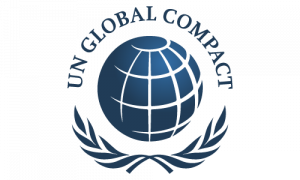The United Nations Global Compact is a voluntary initiative based on CEO commitments to implement universal sustainability principles and to take steps to support UN goals. The UNGC is a call to companies everywhere to align their operations and strategies with ten universally accepted principles in the areas of human rights, labour, environment and anti-corruption, and to take action in support of UN goals and issues embodied in the Sustainable Development Goals. The UN Global Compact is a leadership platform for the development, implementation and disclosure of responsible corporate practices. Launched in 2000, it is the largest corporate sustainability initiative in the world, with more than 9,000 companies and 3,000 non-business signatories based in over 160 countries, and more than 70 Local Networks.
RELX Group has been a signatory to the UN Global Compact since 2004 and its SDG Resource Centre will play an important role in the dissemination of business-driven knowledge, tools & resources, and expertise to advance the SDGs.
The United Nations Global Compact partnered with RELX Group for the launch of the RELX Group SDG Resource Centre on 21 June 2017.
Lise Kingo, former CEO and Executive Director of the United Nations Global Compact: the call to action to mobilise business behind the SDGs

